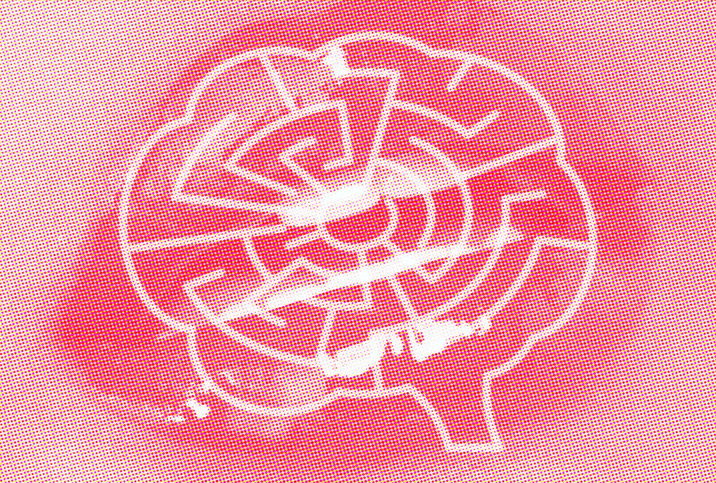The Most Common Sex Issues, Explained

By now, it's widely acknowledged that the sex we see in films and TV shows—looking at you, "Bridgerton"—isn't the norm in real life. (Not unless you're exceptionally lucky, anyway.)
Sex is great, sure, but it's rife with accompanying issues. Things can go wrong every time you have sex, physically, mentally and emotionally. Sex can be disappointing. It can be demoralizing. It can be scary. It can give you the much-dreaded "ick."
Then there are the sexual health risks, a minefield all their own. Every time you engage in a sexual act, you could be risking any manner of sexually transmitted diseases (STDs) or urinary tract infections (UTIs). How many times do we see rom-com leads wincing in pain when they pee 24 hours after they've experienced a mind-blowing orgasm during less than a minute of onscreen penetrative sex?
Sex issues abound in even the most loving and careful relationships. Perhaps, in part, because of the picture-perfect sex scenes we're spoonfed by the media, we don't really talk about these issues. Turns out, we should.
We invited two sex therapists to share the most common issues they see in their line of work. If you've experienced any or all of them, you're not alone.
Before we get started, some brief advice: Consent is key, communication is vital, protection is all-important, and if you're ever unsure or concerned about a situation, it's best to speak to a healthcare professional.
1. Differing libidos
"The most common complaint [I see] is a desire discrepancy between the partners. One person wants sex more than the other," said Tom Murray, Ph.D., a certified sex therapist from Greensboro, North Carolina, and author of "Making Nice With Naughty."
Clinical sexologist and therapist Ness Cooper, from Norfolk, England, agreed.
"Differing libidos—also known as sex drive—is one of the most common issues that occur within the therapy room," she said.
"Many people base their understanding of libido on social expectations and what they were taught during sex education, when in fact, everyone's libido can differ at different stages of their life due to stress, circumstance, different things turning them on at different ages, hormonal changes, illness, changes in routines and more," Cooper explained.
These social expectations can take a severe toll, both on sexual experience and general self-esteem.
"Usually, the one with the lower sex drive is made to feel as if there is something wrong with them," Murray noted. "Despite what popular culture believes about sexual desire, it's far more complicated than what's in movies and novels. For many, especially vulva owners, one's interest in sex is impacted by contextual factors."
"Libidos aren't static like society leads us to believe," Cooper said.
The solution starts with that old maxim: Communicate, communicate, communicate.
"Remember that not everyone's sexual difficulties and challenges present in the same way," Cooper explained. "Start learning to communicate together in different ways and listen to your partner when one way hasn't worked. Couples who are able to communicate sexual difficulties, including sex-related pain, can resolve sexual discrepancies quickly, and [it] even results in better sexual pleasure than before issues arose.
"Consent is another factor that can help many [people] work through sexual difficulties," she added.
2. Erectile disappointment
"Most penis owners whom I see coming in reporting that they have erectile dysfunction actually have erectile disappointment," Murray noted. "That is to say, their plumbing works. They masturbate fine and wake up with erections. However, when they're engaged in partnered sex, problems arise."
He added that if a man experiences an inability to get an erection and feels embarrassed or humiliated, he may project the experience and fear it will happen again.
"The spike of adrenaline deflates the penis. Self-fulfilling prophecy," Murray said. "These folks believe that penises should function like dildos. They don't. Penises rise and fall for a variety of reasons, much of which is outside of one's control."
Cooper said if the issue is recurring, it's worth investigating if the cause is medical.
"It's always worth seeking advice from a healthcare provider if you do experience erectile difficulties or changes as it may be related to [a] medical condition or medication where alternative support can help," Cooper said, adding, "It's important to be aware that an erection isn't always needed to experience penetration [or] feel sexual pleasure.
"Don't fear healthcare professionals," Cooper continued. "What works for one individual may not work for another, but there's a lot of support out there willing to help find a satisfying solution."
If you don't have a primary care provider or you're more comfortable discussing intimate topics through a phone or video visit rather than in person, Giddy Telehealth has options available for you.
3. Anorgasmia
"Anorgasmia is when an individual can't reach orgasm," Cooper explained.
"Anorgasmia can affect people with either vulvas or penises, but it's more common to hear of those with vulvas/vaginas/clitorises [asking] for help regarding this sexual issue," she added. "For some, it's a simple issue of not doing the right types of stimulation for their body. However, others may struggle due to mental barriers."
Cooper pointed out that a lack of stimulation can be resolved by sensual exploration. Mental barriers can be overcome through mindfulness practices to open up awareness, she said.
"Anorgasmia can also occur due to certain health conditions and medications, so it's always a good idea to discuss with a healthcare provider about these possibilities and then they can help you explore methods to reduce anorgasmia," Cooper added.
4. Sexual perfectionism
There are four types of sexual perfectionism, Murray noted:
- "I must be sexually perfect."
- "My partner must be sexually perfect."
- "I think my partner thinks I must be sexually perfect."
- "Society expects me to be sexually perfect."
"Many of my patients have one or more of these forms of sexual perfectionism," he added. "Perfectionism manifests as excessive mind chatter that distracts people from the pleasure of the moment, thus, leading to a whole [host] of sexual problems."
The solution is easier said than done but a vital goal nonetheless.
"The most significant step that people can [take] is to lean into their imperfections," Murray explained. "Become friends with the feeling of awkwardness. The bedroom is the adult playground where you're free to experiment; with consent, of course."
5. Dyspareunia
"Dyspareunia is when an individual experiences vulva and/or vaginal pain that can also affect the ability to experience penetration," Cooper said. "Dyspareunia can be challenging for couples, particularly due to how society emphasizes the importance of penile-to-vaginal sexual stimulation and pleasure.
"There are many reasons why someone might experience dyspareunia," she added. "Where a direct physical or medication-based reason can't be found, there are some who experience dyspareunia due to sexual trauma."
For physical or medication-based causes, Cooper said seeking advice from a pelvic health specialist or gynecologist can help pinpoint the reason for some people. In cases of sexual trauma, she said a psychosexual therapist can help people work through the issue in a trauma-informed way.
"It's also worth noting that sexual pleasure and enjoyment doesn't have to involve vaginal penetration at all," Cooper added.




















